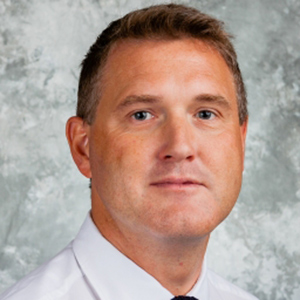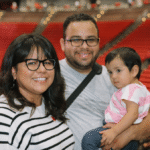
Instructor Luca Dal Pubel Teaches The Evolution of International Diplomacy
One-Unit Weekend courses allow SDSU undergraduate students to earn extra units for graduation while also learning about the latest developments on important current issues. Offered through the College of Extended Studies, each course meets only twice: typically a Friday/Saturday combination for a total of 15 classroom hours.
Course topics are so intriguing that community members often take advantage of the fact that they’re open to the public. Topics have included emergency management, youth gangs, popular culture and criminal justice, substance abuse policies and practices, and restorative justice. Instructor Luca Dal Pubel teaches The Evolution of International Diplomacy.
Please give us a brief history of your career, and how you came to be an instructor at SDSU.
I am originally from Italy and I moved to the U.S. in 2003. I went to law school at University of Bologna, Italy (the oldest university in the world). I first came to San Diego in 2001 to perform an internship with a law firm. I was trained as a mediator in Italy and became active in developing mediation and conflict resolution programs throughout Italy and Europe. When I moved to San Diego, I became involved with the National Conflict Resolution Center (NCRC), first as an intern, and then as a full-time employee. I have worked as a program manager, mediator, and trainer with the NCRC since 2003.
In 2012, I completed my MA in Negotiation, Conflict Resolution and Peacebuilding at CSU Dominquez Hills. I am currently working on my Ph.D. at the Open University of Catalunya in Barcelona, Spain. At NCRC I developed two study-abroad programs (Rimini, Italy, and Barcelona, Spain) in partnership with San Diego State University’s College of Extended Studies. I teach Leadership and Communication, and Conflict Resolution at the Lorenzo de’ Medici Institute in Florence, Italy. I spend several months every year in Italy and Barcelona. Also, I am a consultant to businesses both in San Diego and Italy.
I came to be an instructor at SDSU in 2014 when I started teaching Alternative Dispute Resolution with the International Security and Conflict Resolution department.
What percentage of your students take the course because they need one unit to graduate, versus personal interest?
I would say that 70 percent of the students took my course because they needed one more unit to graduate, and 30 percent were interested in the topic.
What aspect of international diplomacy are students most fascinated by, or surprised to learn?
I think they are fascinated by the complexity of international diplomacy and surprised to learn that even students can be active diplomats when they travel abroad or are involved in exchange programs with other countries.
What are the top three skills people need for successful conflict resolution?
Being assertive (being able to express your perspective in a non-confrontational way). Being a good and active listener so you can fully understand the position of those involved in the conflict. Being able to show empathy and put yourself in the other people’s shoes.
How do you deal with people who don’t want to resolve conflict?
If you are involved in a conflict and the other side is not open to resolve it, then you will need to decide for yourself how you want to handle or end the situation. That is why it is very important to know your alternatives. For example, you may need to end a relationship or look for a third-party intervention to resolve the conflict (judge, arbitrator, mediator).
Are some conflicts simply not solvable?
Yes, some conflicts are simply not solvable especially the one-sided conflicts where one side is not interested in resolving the conflict.
Do animals have better conflict resolution styles than humans?
I like to think that they don’t. As human beings, we can count on our emotional intelligence and intellectual abilities to resolve and manage conflicts.
How can parents help their children grow up to be peaceful?
By providing a positive example when dealing with conflict. Parents must be role models for their children and promote tolerance, compassion, and collaboration in their words and behaviors.
What is “citizens’ diplomacy” and can you give an example of it in action?
Citizens’ diplomacy takes place when citizens act as representatives of their country by simply travelling abroad and interacting with citizens of other countries, or by being involved in official programs like sports events, scientific research, or business meetings. All of us can be citizen diplomats and have the responsibility to help improve our country’s international relations.
Are we any further along toward world peace than we were 100 years ago?
Definitely. The world is becoming less violent and there is more international cooperation. Just 100 years ago the world was involved in the beginning of the Great War, and the 2nd World War ended only 70 years ago. We are living the most peaceful times of human history and I think this is the biggest accomplishment our species has achieved.
What peacemaker – living or dead — do you look up to?
Leo Tolstoj, Gandhi, Nelson Mandela, Martin Luther King. Aung San Suu Kyi, Emma Bonino, Dalai Lama.
For more information on One-Unit Weekend Courses, please visit neverstoplearning.net/oneunit.
What Students Say About One-Unit Weekend Courses
“I took the Restorative Justice: Alternatives to Punishment course to help me decide what to go to graduate school for. I was feeling kind of lost and overwhelmed with the choices, and this course made me decide to pursue a social justice MA. This course taught me there are other, more beneficial (in some instances) consequences aside from juvenile hall. I would recommend this course to others.”
– Devin Grindrod
“The class (Addressing Youth Gangs in the U.S.: Prevention, Intervention, and Suppression Strategies) was really enlightening on gang issues, especially locally. We were able to talk to reformed gang members as well as a police officer. Both perspectives were important aspects to the authenticity of the subject. I would definitely recommend it to people who just need the credit as well as people who are interested in working with youth.”
– Elleisha Elzien
“I was very interested in the fact that the course (Introduction to Emergency Management) demonstrated real-world applications. It was very informative and helpful.”
– Maya Fakhrriddine
“Great way to make up one unit!”
– Tiffany Taft
“I became more informed on the topic of immigration, as a result of the Fixing What’s Broken with Immigration course.”
– Sandra Cosio




